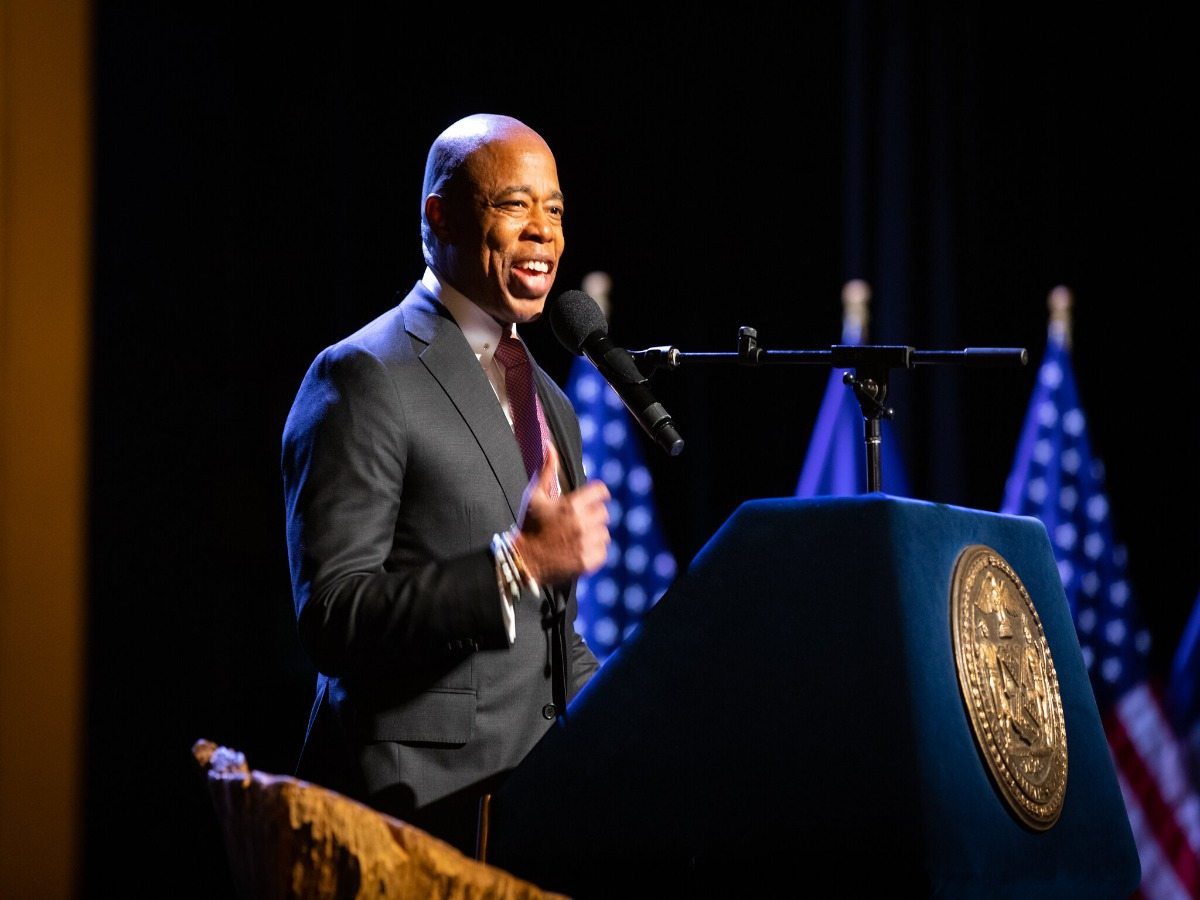Black leaders in New York are reacting in diverse ways to the indictment of Mayor Eric Adams, sparking a larger conversation about representation.
Adams faces accusations of accepting lavish travel perks and illegal campaign contributions from a Turkish official and other foreign nationals, allegedly in exchange for favors, such as expediting the opening of a Turkish consulate. However, he pleaded not guilty on Friday, vowing to fight the charges fiercely.
“I always knew that if I stood my ground for New Yorkers, I would become a target — and a target I became. If charged, I am innocent and will fight this with every ounce of my strength and spirit,” Adams said on Wednesday night, September 25, 2024.
Amid his legal troubles, a section of African American civil rights leaders, clergy, and grassroots activists are standing by him.
“Four more years!” chanted a group of Black clergy leaders who gathered to pray for the mayor outside City Hall on Tuesday evening.
“What I want in your prayer is to continue lifting me and this administration up, with the strength to move forward,” Adams told the group. He reminded them, “This is what we fought for, and many of you were part of the campaign,” referring to his 2021 election.
Despite the support, other Black New York activists, elected leaders, and residents are calling for Adams’ resignation. They fear his indictment could harm the broader progress in Black political representation achieved in recent years.
“I think that as we achieve power, we ought to make sure we handle it in a way that protects the people who helped us achieve it,” said the Rev. Al Sharpton, president and CEO of the National Action Network. “But we also shouldn’t rush to throw everybody under the bus because of accusations.”
Sharpton, who has known Adams for over 35 years and counts him as one of the earliest supporters of his civil rights organization, told the Associated Press on Friday that he has “never known him to do anything criminal.”
Before Adams was charged, federal investigators conducted multiple probes into several top officials in his administration, including the brother of his former police commissioner; a consulting firm run by the brother of his schools chancellor and deputy mayor for public safety; and Tim Pearson, one of his top advisers and closest confidants. Pearson resigned Monday night, following the earlier resignations of Police Commissioner Edward Caban and Schools Chancellor David Banks. All have denied any wrongdoing.
READ ALSO: He accepted harmless ‘courtesies,’ not bribes – lawyer of NYC Mayor Eric Adams defends
The U.S. attorney who brought the case against Adams, Damian Williams, is also Black.
Michael Blake, a former New York Assembly member and vice chair of the Democratic National Committee, called the indictment a “reflective moment” for Black communities in New York and the Black political class that helped bring Adams to power.
“This cannot be the standard,” Blake said, adding that elected officials he spoke with described the situation as “chaotic and unsustainable” and “embarrassing.” He expressed confidence that Adams will not be mayor by January 1, 2026, regardless of the trial’s outcome.
Blake is considering a run for mayor himself.
The debate over whether Adams should resign is dividing Black leaders. Sharpton has said he plans to discuss the issue with other top Black leaders in New York. Last December, Sharpton convened Adams, the state attorney general, the lieutenant governor, the City Council speaker, and the Manhattan and Bronx district attorneys—all Black—to celebrate historic representation in state and local government.
Sharpton said he wouldn’t decide on whether to call for Adams’ resignation without consulting the group. “We may feel he’s innocent but can’t run the city. We may feel he’s innocent and can run the city. We may feel he’s guilty,” Sharpton said. “We need to talk.”
Some leaders, however, are not waiting for that meeting.
“I ask the mayor to seriously and honestly consider whether he can fully dedicate himself to serving New Yorkers, who deserve sound and stable leadership,” said City Council Speaker Adrienne E. Adams, who is Black but unrelated to the mayor.
Last week, she called the charges against the mayor “serious” and expressed concern about their impact on city governance.
Other Black officials share this sentiment. “Each New Yorker deserves a mayor dedicated to serving our communities and upholding the dignity and integrity required by this office,” said State Sen. Zellnor Myrie. He called the indictment “a sad day for the city, and especially painful for Black New Yorkers who placed their hope and faith in this mayor.”
Still, many continue to defend Adams.
“I was shocked and didn’t understand why this was happening to these heroes of ours,” said Assemblymember Rodneyse Bichotte Hermelyn, chair of the Brooklyn Democratic Party. She noted that many Black constituents are asking, “Why is the government coming after Black folks?”
“We all know that an indictment is not a conviction,” Bichotte Hermelyn said, quoting the famous adage that a prosecutor “can indict a ham sandwich.” She added that Adams represents “a big political and empowered working class of Black neighborhoods,” which was the foundation of his electorate.
Adams, for his part, says he’s listening to residents urging him to resist calls for resignation, even as some Black leaders waiver in their support.
“Eric, stay the course,” the mayor said of the messages he’s received since the indictment. “Don’t be distracted.”










